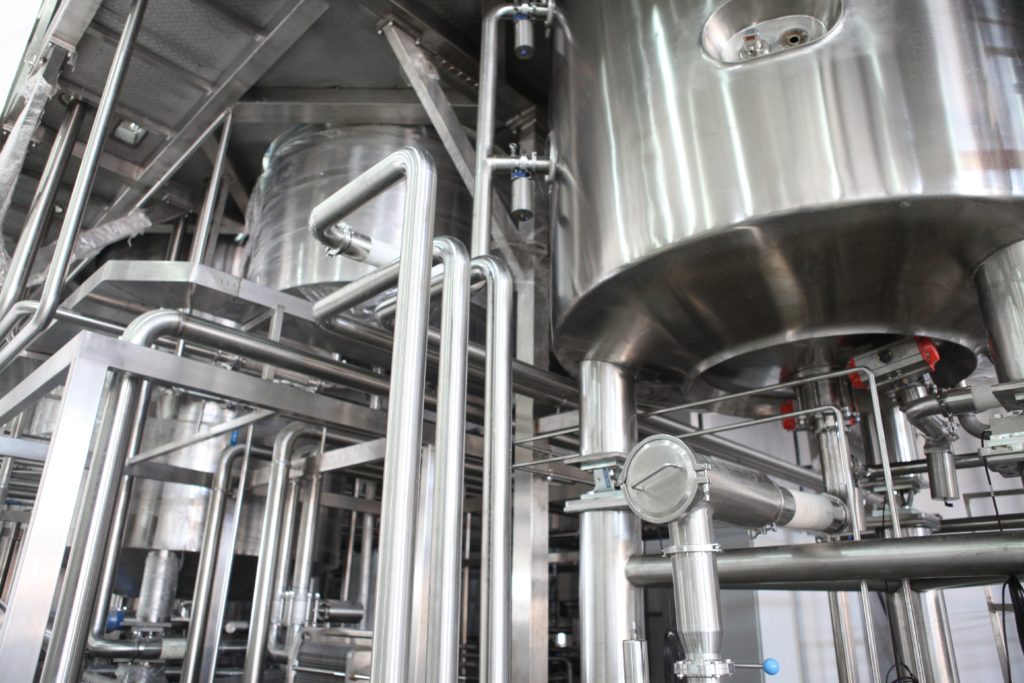
BY ADRIEN, MY JOB GLASSES MENTOR & CHEMICAL PLANT OPERATIONS TECHNICIAN @ BIOLANDES
FIRST THINGS FIRST !
In middle school, most children around me were passionate about football, drawing or music. My interests were quite different: I wanted to transform the matter. I don’t know how to explain this but truth is, I was fascinated by the transformation of a raw element like a leaf or a flower into something else. Thus, I chose a French BAC STL (Laboratory Sciences and Technologies) specialising in chemistry, before obtaining a French DUT in Chemical Engineering / Process Engineering in order to become Chemical Plant Operations Technician.
Today, I work in a factory whose main activity is to extract aromatic compounds from plants for the perfume and agri-food industries.
Are you wondering what the daily life of a Chemical Plant Operations Technician looks like? You are in the right place !
MY ROUTINE AS A CHEMICAL PLANT OPERATIONS TECHNICIAN
In the chemical industry, it is common to work 3×8, meaning three eight-hour shifts in which several teams take turns, and the profession of Chemical Plant Operations Technician is no exception. Why is it necessary to work day and night in these types of factories, you ask me? Because machines never sleep! Shutting down a machine to restarting it after a while takes time, and in the corporate world, time is money. It is therefore preferable to organize production so that the factory is always running.
I start my day by receiving a set of instructions from the technician who has worked on the previous shift to mine. We discuss any problems encountered and the directives sent by our managers. This moment is crucial because many times we can bring up more topics while we chat than those written down on our notes.
My colleague may, for example, ask me a question about something that was not clear enough in the instructions I had left for him.
We then talk about the ongoing processes and any problems that have arisen. From time to time, the pumps in our machines leak or get stuck. It is important to talk about it with co-workers and to check if the issue has been resolved or not.
Right after that, I put on my safety uniform on: blue boiler suit, safety shoes and helmet. I also keep ear muffs and gloves handy. This outfit, commonly known as PPE (Personal Protection Equipment), is essential to prevent us from injuring ourselves or getting dirty at work. The workshop environment is quite noisy and we handle extremely abrasive cleaning products such as caustic soda. It is therefore mandatory to wear protective gloves and glasses.
Once at my workstation, I take a tour to check if everything is right according to the instructions I have received and if there is no problem. I look for leaks on the ground and read the measuring instruments indications. These include the manometer, which indicates the pressure on a device or a pipe, for instance.
Afterwards, I walk into my office where I have a full view of the workshop. In addition, I have access to the temperature and pressure curves, as well as the flow rates of the products running through the installations. The main problem to be avoided is the disruption of production. With experience, reading these curves allows us to anticipate issues and to repair any machine that begins malfunctioning sufficiently early on.
I take regular rounds to see if everything is going well, whether there are any leaks or abnormal noises. If I ever find anything wrong, I try a basic repair myself. If I see that the repair calls for more specific equipment, I contact the maintenance department, whose team has all the necessary skills and tools. Indeed, the main goal as a Chemical Plant Operations Technician is to ensure that production never stops and that the products used meet the requirements of our customers.
FRANKIE SAYS RELAX !
As you can imagine, I don’t work eight hours non-stop. I take a lunch break and I also have a second break in the day to breathe a bit. This allows me to share some time with other colleagues which I appreciate. At lunchtime, options are eating at the canteen or going home but you need to do your math, since the lunch break lasts half an hour and making the round trip in a short time is not necessarily worth it.
SPOILER: CHEMICAL PLANT OPERATIONS TECHNICIANS ALSO DO PAPERWORK
A standard day always ends with a bit of paperwork. The aim is to leave a written record of all the actions and checks I have performed during my working time. Each key moment is noted. Our customers can therefore refer to our notes at any time if necessary. I also fill out the instructions book, which will serve as a reference for the Chemical Plant Operations Technician who will take over from me. All of these documents are used for quality control and allow keeping track of the parameters used during production process.
That’s it ! You finally know what a day in a Chemical Plant Operations Technician life looks like. The profession I dreamt of when I was younger and that, today, brings me a great sense of accomplishment.
If I had to add a message for any young person reading this article, I would totally recommend building a career in the luxury goods and agri-food industries, as these are sectors where the word crisis is unheard of and they are constantly recruiting. 15 years ago, there were 140 employees at the factory I work at. Today, we are already over 200 employees. In addition to recruiting, these industries are constantly evolving, giving us the chance to discover new equipment and technologies at every new turn.
Do you want to chat with Adrien ? Click here to contact him on My Job Glasses !


